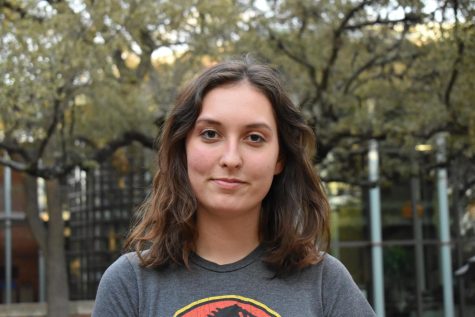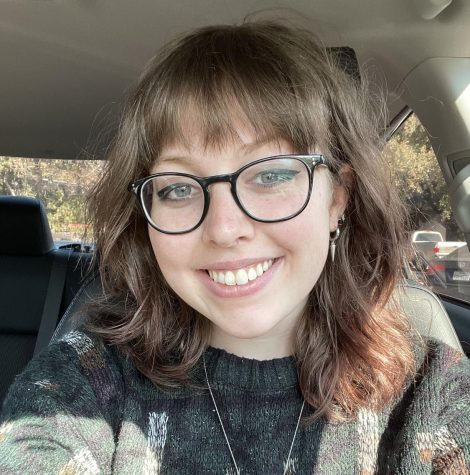Coach’s Corner: Drew Cohn
Cohn prepares for his second season at Trinity
Andrew Cohn is entering his second season as Trinity’s head women’s tennis coach. Despite starting his new role in the midst of the pandemic, Cohn saw success in his first season with a 9-8 winning record and a successful postseason, with three Tigers receiving All-American recognition.
Before coming to Trinity, Cohn spent three years as the head coach at Haverford College in Pennsylvania. Under his leadership, the Fords made it to the championship match of the Centennial Conference and received an Intercollegiate Tennis Association (ITA) national ranking for the first time in the program’s history, in 2018.
Although Cohn is technically no longer a new addition to the Athletic Department, in this Coach’s Corner interview Cohn reveals new information about his decision to move to Trinity and his passion for tennis and coaching.
Why did you choose to come to Trinity after three years at Haverford College?
I was familiar with Trinity a little bit when I was a player. I played Division III [DIII] in California at Pomona-Pitzer and we would always have some really great matches [with] the Trinity men’s tennis team at the time, and I knew the history of Trinity a little bit. Then this job opened up and just seemed like a really incredible opportunity and a program with a ton of history and just [an] amazing legacy in the DIII landscape and the DI [Division I] landscape too.
What are some of the struggles of starting a new job in the middle of a pandemic?
I think, you know, obviously, last year was uncharted territory for everyone. Navigating how we can do team activities and all of the things that make a team dynamic really special within COVID restrictions is a really challenging task, and I think we did a really good job finding our way through it within our policies, the best we could. And then on a personal level, coming across the country to [a] new area, you feel like you’re in a bubble the entire time that first year and just, you know, feeling like you’re understanding the city a little bit more. Obviously, San Antonio is a great place with [a] great food scene and a great history as well, but, you know, making sure that we’re still staying within our COVID and ProtectTU restrictions here.
How did you know that you wanted to become a coach?
I was really fortunate, I had kind of an orthodox introduction to coaching. When I was going to be a freshman in college, I was invited to work on a tennis camp staff up in Santa Cruz, Calif.—one of the Nike camps—and I loved work[ing] with a bunch of, you know, college coaches, teammates of mine. And every year I would finish up the school year and I would go back and work camps for summer, so I got into coaching, you know, basically doing eight weeks of summer camp each year. When it came time, my senior year, I was graduating and I was figuring out where I wanted to go next, I went back and worked camp again and during that summer, I just realized how much I was enjoying that experience. I had a really cool opportunity to be a grad assistant and I was able to get my MBA while I was coaching, and two weeks into that program, I realized I really couldn’t care less about academic stuff anymore. And I was just having so much fun coaching and so that’s when I really went all in on it.
In your opinion, what is the most important aspect of coaching?
I think the relationships, you know. Having a good relationship with your players, having good relationships with your coworkers and I think just the way that you’re treating others and having communication. I think, above all else, [it] doesn’t really matter—to a degree—what you’re doing or what the information is, if there’s not that care and trust between the coach in the player.
Where does your love for tennis come from?
I think it kind of stems a little bit [from] my experience within coaching. I started tennis maybe a little bit later than some of my friends when I was playing in southern California. When I moved out there, I got really into it going into my freshman year of high school, and I thought I was a little bit of a late starter, but I think that also gave me a little bit more appreciation for the game and being really excited about seeing my own growth. And I really created a lot of my passion, you know, to team tennis. I had a great high school team, in terms of the dynamics within my teammates, and then in college especially I had an unbelievable experience with my teammates.
Is there something that you wish the casual spectator knew a bit more about when it comes to tennis?
Yeah, I think that there’s a lot of that belief that tennis is an individual sport. And I think there’s a lot of truth to that— I mean obviously, especially in a singles match, you know the players out there, they’re competing— but it is such a different aspect in college with having teammates behind you, that energy dynamic. There is so much more of that momentum factor, I think, in a college tennis match than there is maybe in some junior tournaments, and so having spectators out here and having them, you know, cheering and coming out and supporting their friends, roommates, whoever, it makes it makes the atmosphere so much better for us. I think the more energetic everyone is here, the better we play.
If you were stranded on an island, who would you want to be stranded with, and why?
The answer probably changes depending on my current mood, but right now I’m in a big comedy kick. I would go with John Mulaney because he’s my current favorite stand-up comedian, and I think it would be a very entertaining time on the island.
What three people, alive or dead, would you invite to your dream dinner party?
I would go, Mel Brooks. Barack Obama. And Robin Williams. Great bunch.
What would you eat at said dinner party?
A classic. Just a big old steak and french fries.
If there’s one thing you can tell the world about yourself, what would you say?
I hope that what I’m doing can make other people’s experiences around me better. Just, I try every day to, you know, be positive. Do unto others as you would have them do unto you — hopefully that’s happening.

My name is Alejandra, and I'm a senior majoring in Neuroscience. I initially joined the Trinitonian as a first-year and worked my way up from a Sports...

My name is Claire Sammons and I am an Anthropology and Communications double major. I have worked for the Trinitonian since fall of 2020. I became a photographer...





